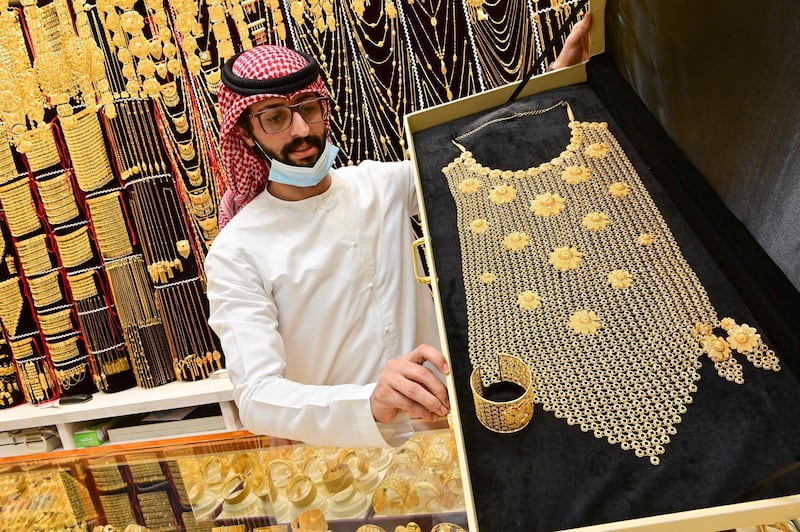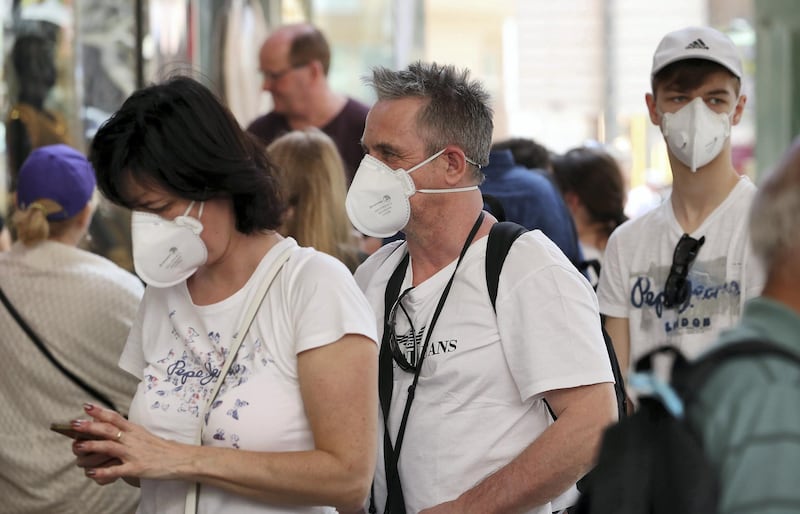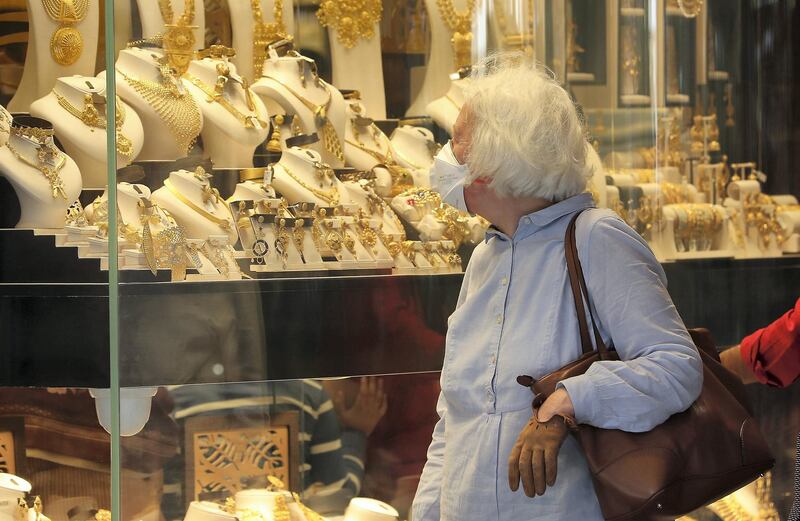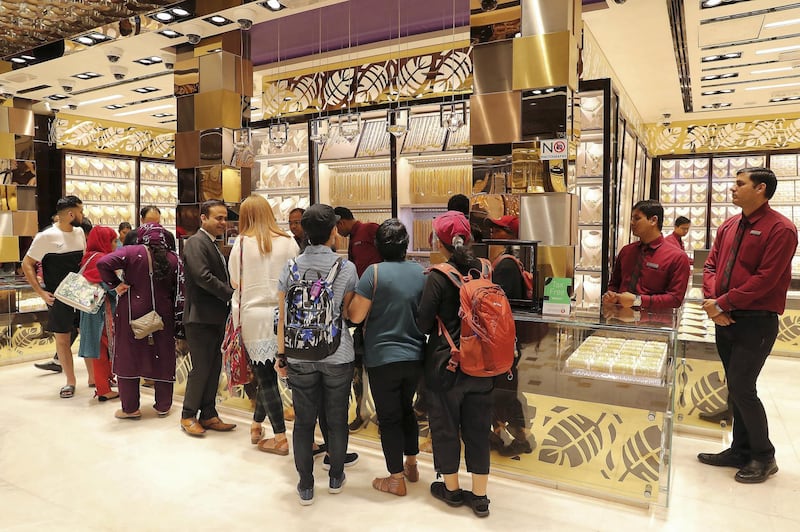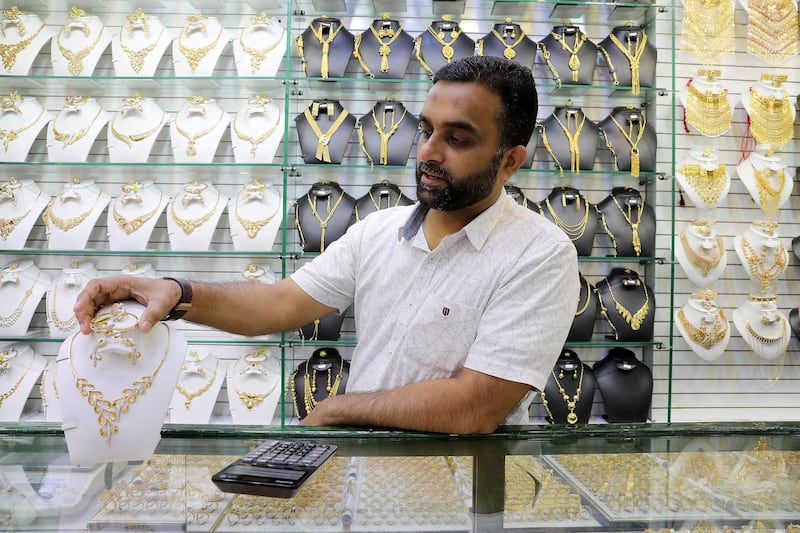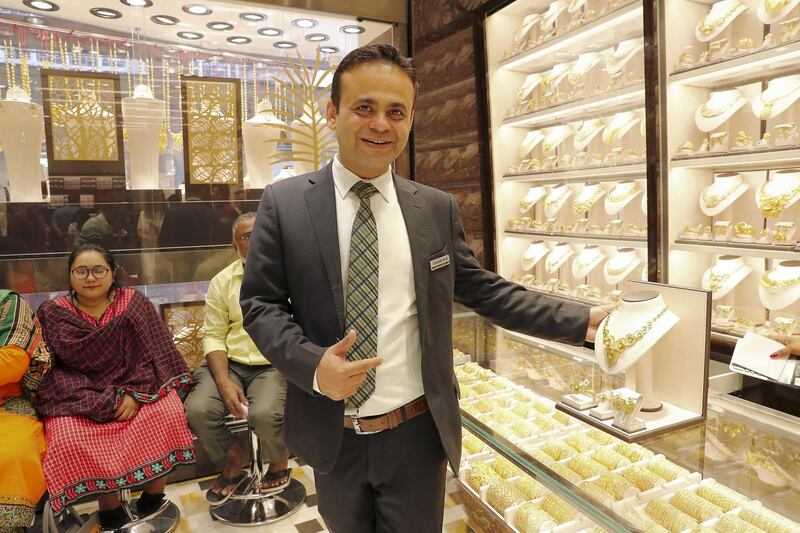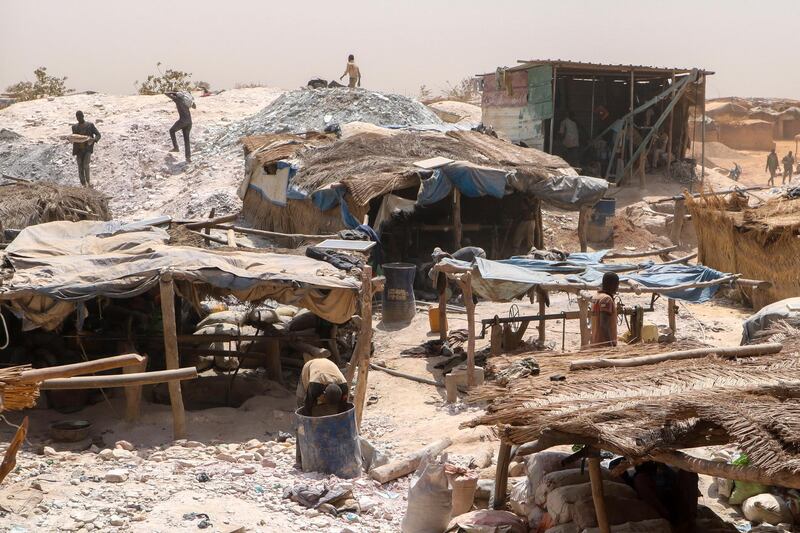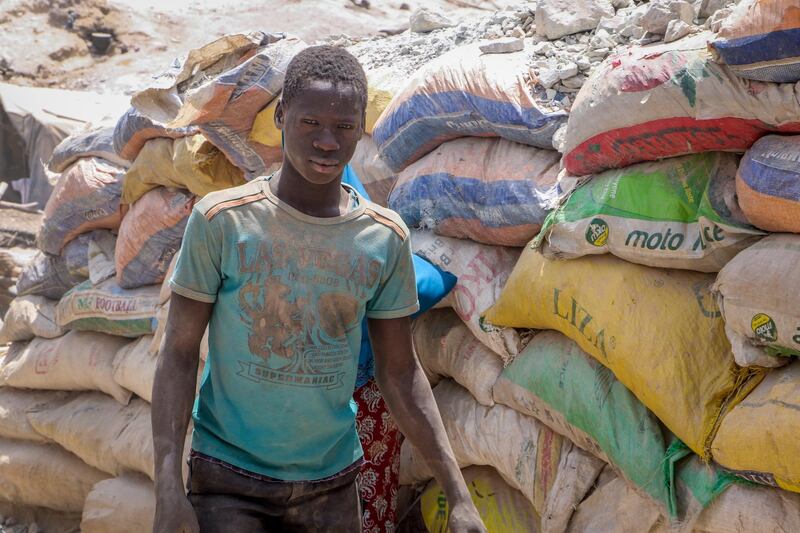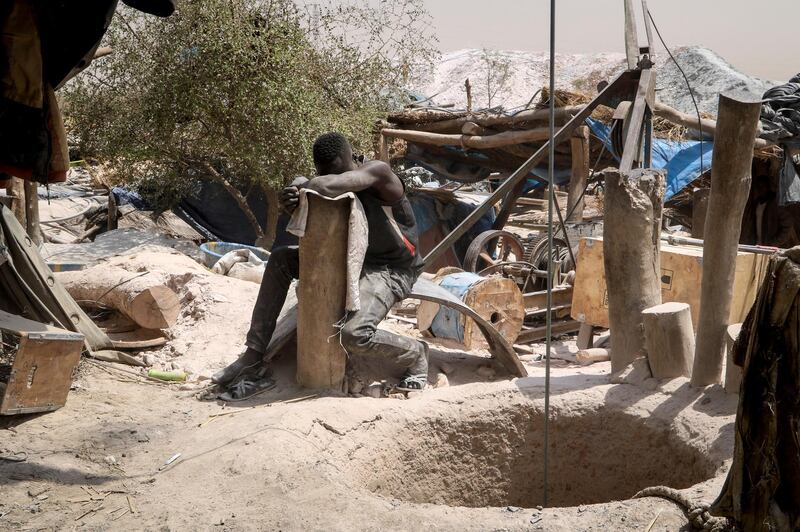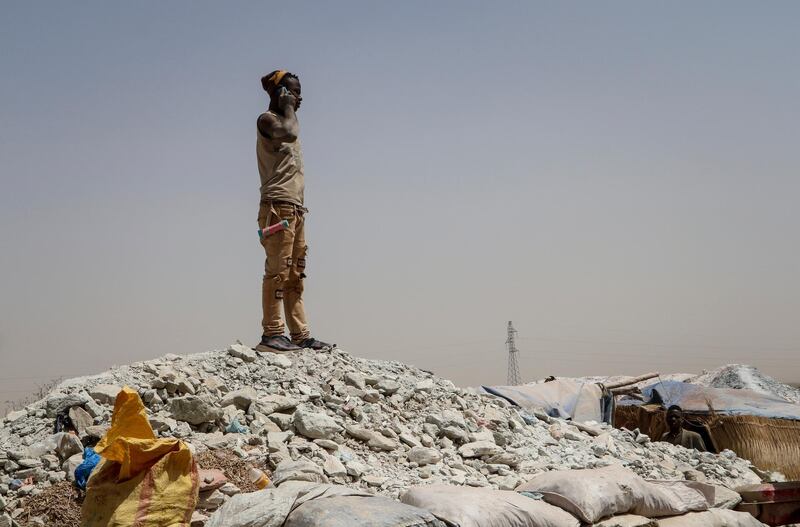A gold rush has gripped the world, with investors big and small putting their money into the precious metal considered to be a safe investment as the Covid pandemic causes damage to economies.
The boom in solid gold has led to record price rises, and experts believe that for the first time its value will soon pass $2,000 (Dh7,345) an ounce.
Demand is so great that high-security vaults in London are struggling to find lorries to transport the metal, bullion dealers have said.
A new survey showed that investors believed the price of gold could rise by another 30 per cent this year as worries over the effect of Covid-19 on the global economy continued.
Adrian Ash, the director of research at BullionVault, which holds $2.5 billion worth of physical gold, said that people were investing in the metal because they were worried about the value of other assets, such as stocks, shares "and, indeed, money itself”. “As the world economy tries to reopen after the Covid shutdown, the risk of mass bankruptcies and debt defaults present the greatest immediate risk to global financial stability," Mr Ash said.
Gold prices rose by $100 in a single day twice since lockdown measures were brought in around the world in March, a price not reached in a decade.
The significant rise in value in the past few weeks has also been driven by "hot money" from major hedge fund managers, who believe they can “put one dollar down and make 10”, according to one trader.
The rush to buy gold, which began when the US Federal Reserve lowered its GDP growth forecast last year, meant the price of one gold bar has almost doubled from $400,000 five years ago to $741,000 today.
The standard bar seen in films such as The Italian Job, which is the main gold unit for trading and is held by central banks, weighs 400 troy ounces, or 12.4 kilograms.
While demand for physical gold has soared, the jewellery market has witnessed a significant slump, particularly in its main centres: the Middle East, India and China.
Covid-19 has destroyed the traditional marriage season in India when brides are showered in gold jewellery as part of their dowries.
One dealer, who did not want to be named, said there had been a 26 per cent rise in physical gold purchases. “There is nothing else really that people can buy and gold remains one of the few things people can count on,” he said. “It’s a low-volatility asset, which if good enough for central banks is good enough for people.”
BullionVault has conducted a new poll of some of its 85,000 customers worldwide, finding that 78 per cent believed gold prices would rise by 30 per cent before the end of the year. Two thirds of respondents also said that bankruptcies and defaults were the biggest threat to global financial stability in the next year. Other reasons given for buying gold among the 1,300 people surveyed were a failure to find a Covid-19 vaccine, social unrest and geopolitical instability.
“With increasing fears of bankruptcy and companies defaulting on debts, gold is a physical asset that you can liquidate immediately for full value in a deep global market,” Mr Ash said, speaking from London. “If you own physical gold outright, it has the comfort and benefit of real estate but you can sell it immediately without an estate agent. It cannot go broke on you.”
Gold dealers are being contacted by a much higher number of smaller investors who are buying around $12,000 in physical gold. This has led to large bars being transferred around major gold centres in London and Zurich, with a high demand for security vehicles from companies such as Brinks and Loomis.
Lockdowns have also made it difficult for people to go out and sell their gold. One-third of the global market comes from recycled gold, but this has largely dried up. However, the major gold mines in China, Russia, South Africa and Australia are still producing the precious metal.
